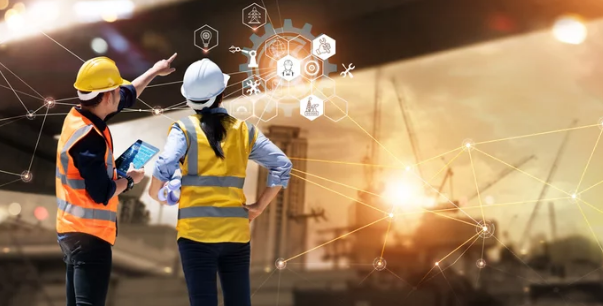The nuclear industry is undergoing a technological transformation. Artificial Intelligence (AI) is now playing a pivotal role in reactor design, operation, and safety, ushering in a new era of smart nuclear engineering. By integrating AI into nuclear systems, engineers are improving efficiency, reducing risks, and creating reactors capable of autonomous decision-making in real time.
This article explores how AI is shaping nuclear engineering, highlighting smart systems, digital twins, predictive maintenance, and optimization technologies that are redefining reactor design and operation.
The Role of AI in Modern Nuclear Engineering
AI brings computational intelligence to complex nuclear systems, enabling engineers to:
- Optimize Reactor Performance: Algorithms analyze vast amounts of operational data to enhance efficiency.
- Predict Equipment Failures: Machine learning models detect early signs of wear or anomalies.
- Enhance Safety: Real-time monitoring can predict potential accidents before they occur.
- Streamline Design: AI accelerates simulations, reducing the time required to design and test new reactors.
By combining traditional engineering with AI, nuclear systems are becoming smarter, safer, and more reliable.
Smart Systems in Reactor Design
Modern reactors leverage AI-powered smart systems across several areas:
1. Digital Twins
- A digital twin is a virtual replica of a physical reactor.
- Engineers simulate reactor operations, testing different scenarios without risk to the actual plant.
- Digital twins help optimize fuel usage, thermal management, and safety protocols.
2. Predictive Maintenance
- AI algorithms analyze sensor data to anticipate equipment failures.
- Predictive maintenance reduces downtime and prevents costly accidents.
- Enables continuous monitoring of pumps, turbines, and cooling systems.
3. Autonomous Control Systems
- AI systems can adjust reactor conditions in real time, maintaining optimal performance.
- Reduces human error and enhances response speed during abnormal conditions.
- Useful in small modular reactors (SMRs) and advanced reactor designs.
4. Safety and Risk Management
- Machine learning models assess the probability of system failures.
- AI assists in emergency response planning by simulating potential accidents.
- Supports compliance with regulatory safety standards worldwide.
AI-Enhanced SMRs and Advanced Reactors
Small Modular Reactors (SMRs) and Generation IV reactors are particularly suited for AI integration:
- NuScale SMRs: Employ AI for real-time monitoring of modular units, improving scalability and safety.
- High-Temperature Gas Reactors (HTGRs): AI optimizes heat distribution and energy output for industrial applications.
- Molten Salt Reactors (MSRs): AI manages liquid fuel flow, temperature, and chemical composition for optimal efficiency.
AI enables smart management of these complex systems, allowing smaller teams to oversee multiple reactors safely.
AI in Nuclear Waste Management
Handling radioactive waste is a critical challenge for nuclear engineers. AI assists in:
- Predicting decay patterns and storage requirements.
- Optimizing transport and storage logistics.
- Enhancing robotic systems for remote handling of hazardous materials.
By integrating AI, nuclear waste management becomes safer, more efficient, and cost-effective.
Global Projects Leveraging AI in Nuclear Engineering
Several countries are pioneering AI integration in nuclear projects:
- United States: NuScale Power uses AI to monitor SMR modules and optimize reactor operations.
- France: Digital twin technology is being applied to existing nuclear fleets for predictive maintenance.
- Japan & South Korea: AI helps monitor post-Fukushima safety systems, enhancing reactor resilience.
- China: Smart nuclear plants utilize AI for operational efficiency and predictive safety monitoring.
Global collaboration in AI-driven nuclear engineering is accelerating adoption and innovation across the industry.
Benefits of AI in Nuclear Engineering
Integrating AI into reactor design and operations offers multiple advantages:
- Enhanced Safety: Early detection of anomalies prevents accidents.
- Operational Efficiency: Optimized reactor performance reduces fuel consumption and waste.
- Reduced Human Error: Automation handles complex, repetitive, or high-risk tasks.
- Cost Reduction: Predictive maintenance and optimized design lower operational and construction costs.
- Scalability: AI allows small teams to manage multiple reactors or modular systems efficiently.
These benefits position AI as a key enabler for the next generation of nuclear projects.
Challenges and Considerations
While AI offers immense potential, integrating it into nuclear engineering presents challenges:
- Data Security: Protecting sensitive operational data from cyber threats.
- Algorithm Transparency: Ensuring AI decision-making is understandable to operators and regulators.
- Regulatory Approval: Updating safety and operational standards to accommodate AI-driven systems.
- Human-Machine Collaboration: Balancing automation with skilled human oversight.
Engineers must address these challenges to fully realize the benefits of AI-enhanced nuclear systems.
The Future of AI in Nuclear Engineering
The integration of AI is expected to expand significantly in the next decade:
- Autonomous Reactor Operation: AI will manage multiple reactors with minimal human intervention.
- Fusion Reactor Control: AI will optimize plasma confinement and energy output in experimental fusion projects.
- Global Predictive Analytics: AI networks may monitor worldwide nuclear operations for efficiency and safety.
- Enhanced Simulation and Design: AI will shorten development timelines for new reactor types and nuclear systems.
AI promises to redefine how engineers design, operate, and maintain nuclear technology.
Conclusion
AI is transforming nuclear engineering from a human-driven process into a smart, adaptive system. Through digital twins, predictive maintenance, autonomous control, and safety optimization, AI allows engineers to maximize efficiency, minimize risks, and innovate faster.
From SMRs to Generation IV reactors and even fusion experiments, AI is becoming an indispensable tool in the nuclear industry, powering smarter, safer, and more sustainable energy solutions for the 21st century.
Also Read :
